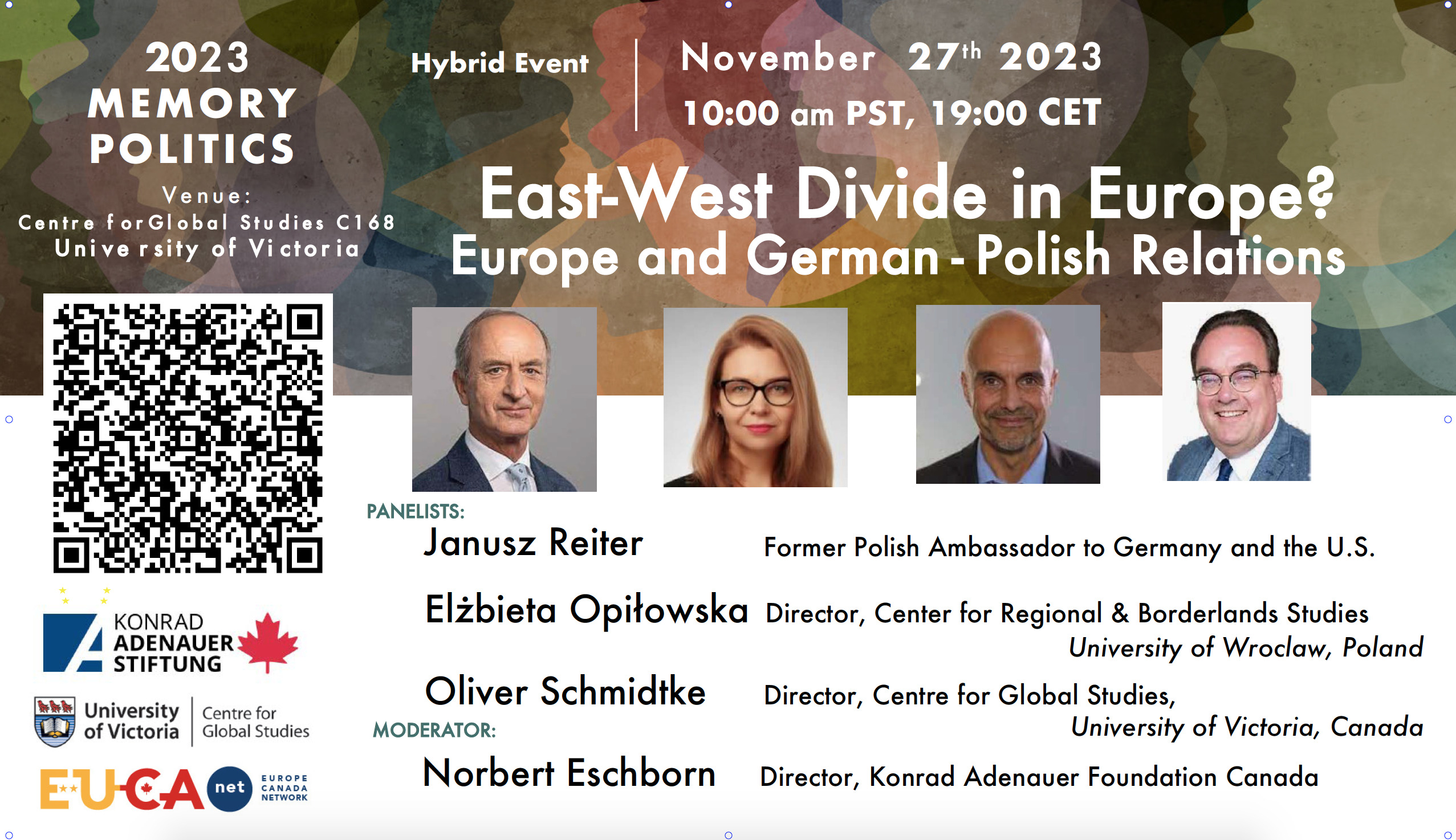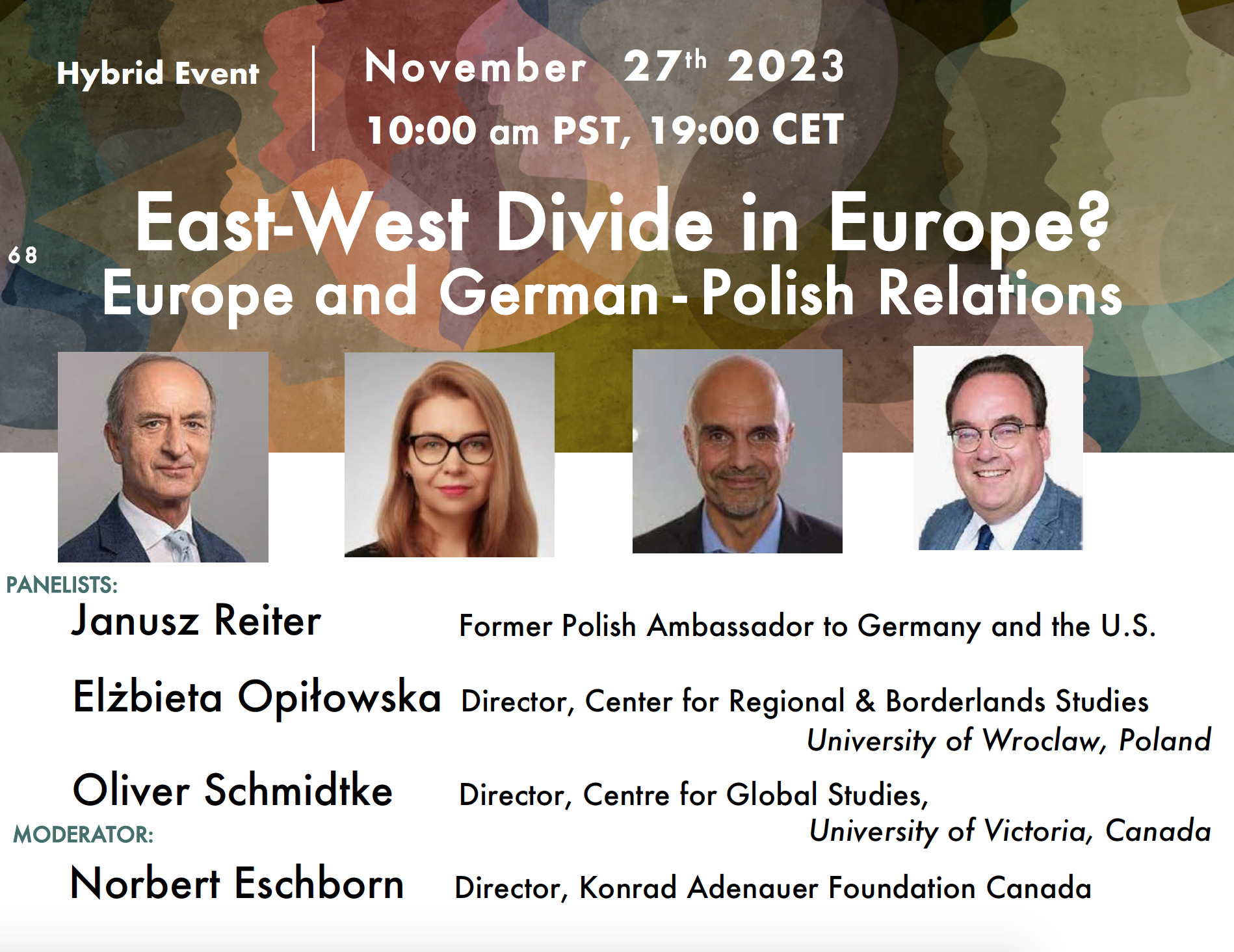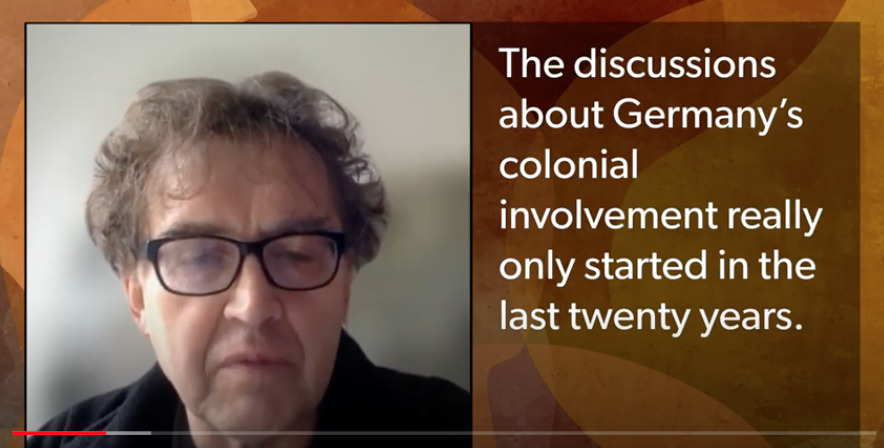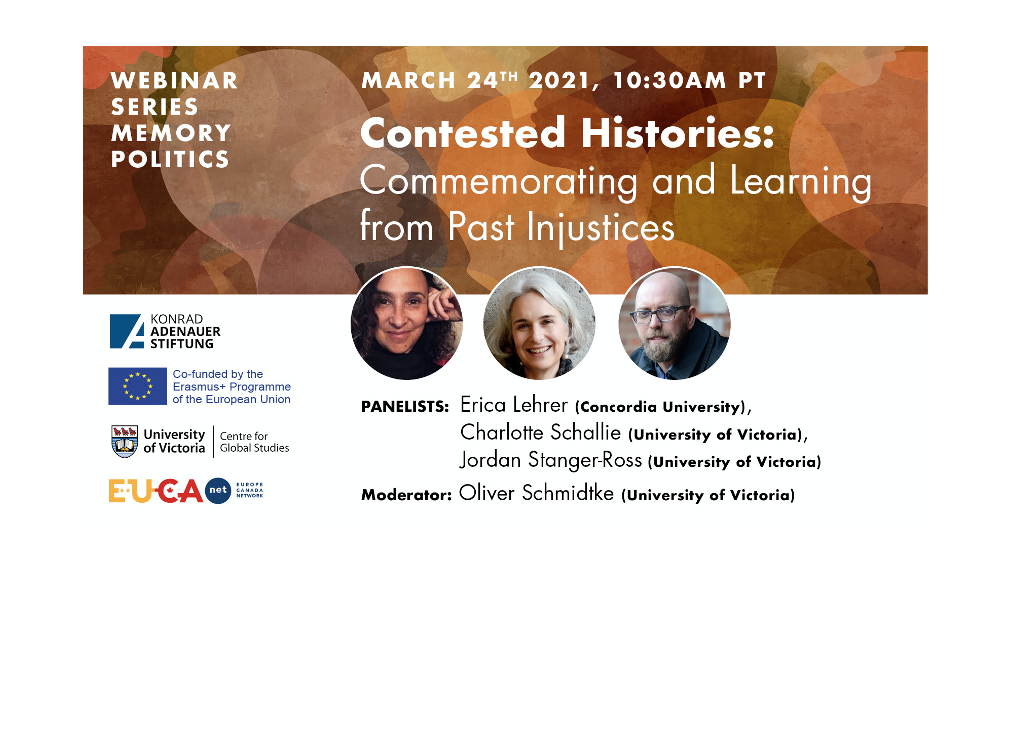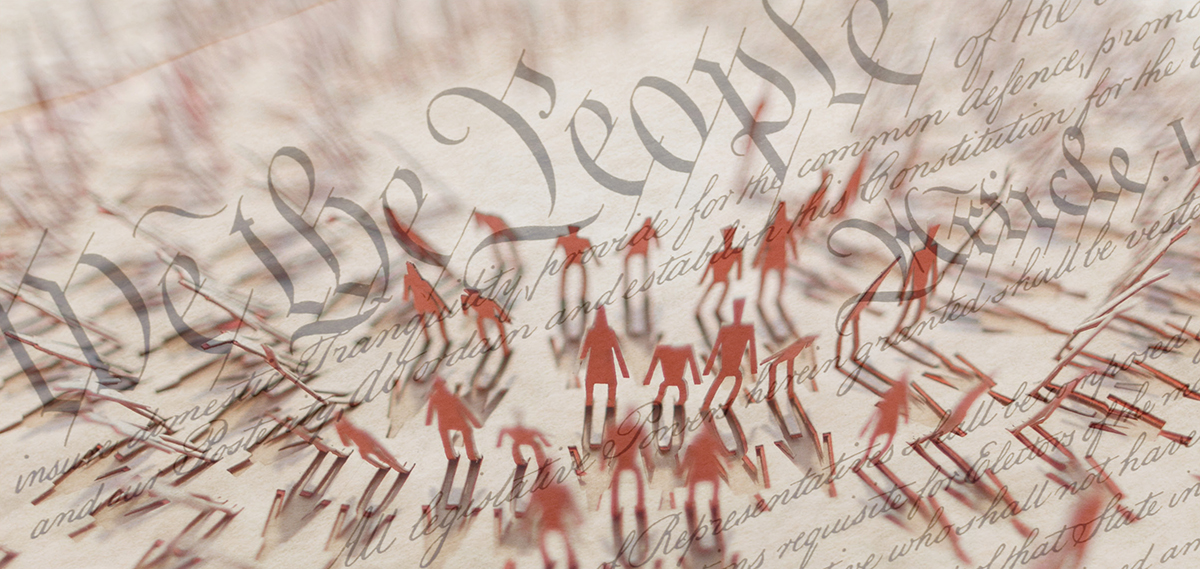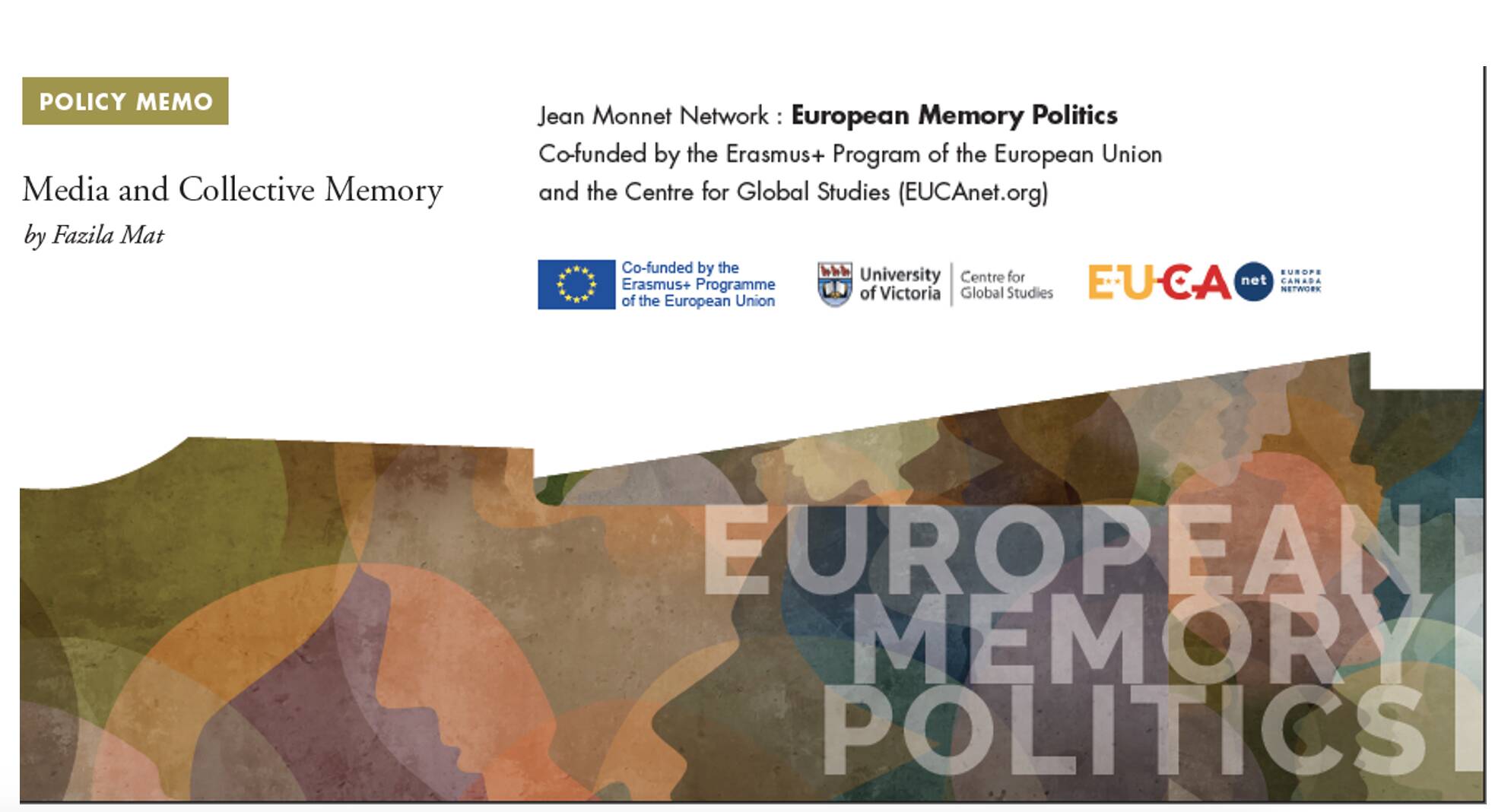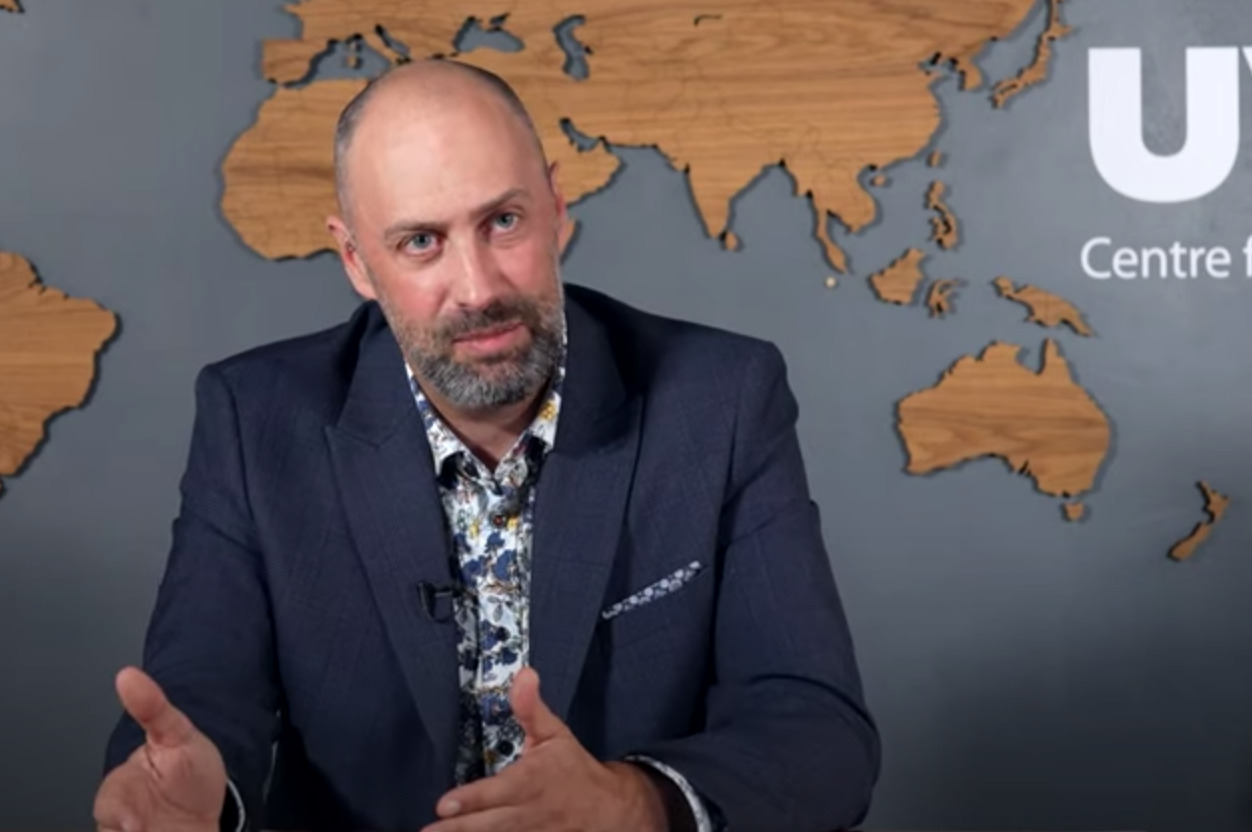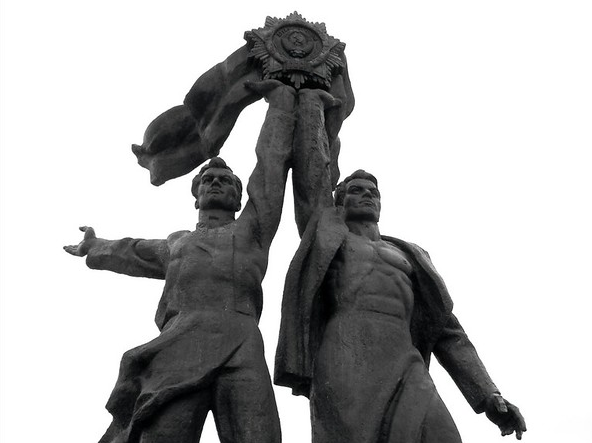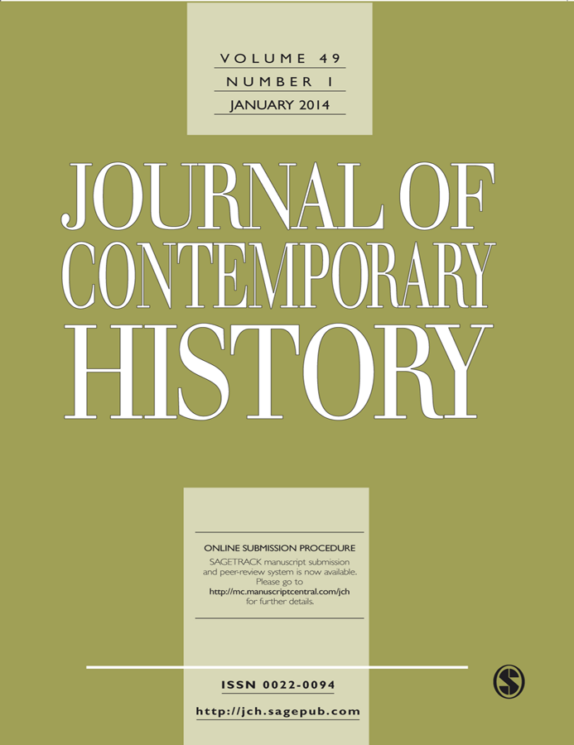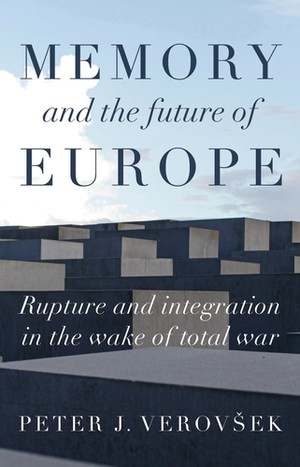East-West Divide in Europe? Europe and German-Polish Relations
HYBRID EVENT
Monday, November 27th 10 am/ 19:00 CET
Centre for Global Studies, Room C168
Join panelists Janusz Reiter (former Polish Ambassador to Germany and the U.S,) Elzbieta Opilowska (Director, Centre for Regional and Borderlands Studies, University of Wroclaw, Poland) and Oliver Schmidtke (Director, Centre for Global Studies, University of Victoria) for a discussion titled ‘East-West Divide in Europe? and the German-Polish Relations’.
This event will also be moderated by Norbert Eschborn (Director, Konrad Adenauer Foundation Canada). It is part of the project “Towards a Deepening East-West Division of Europe” co-financed by the Konrad Adenauer Foundation Canada and the Europe Canada Network hosted at the Centre for Global Studies at the University of Victoria.
Towards a new East-West Divide in Europe? German-Polish relations in challenging times
The Russian attack on Ukraine has brought greater public attention to a phenomenon that has shaped current political realities in Europe for some time: the creeping alienation between Western European countries and those in Central Eastern Europe. It is becoming increasingly clear how the experience and collective memory of Soviet rule in particular continue to shape current political attitudes and priorities: First, these countries show an affinity for a form of ‘popular’ nationalism that differs markedly from the liberal-cosmopolitan Western European tradition. Competing conceptions of (liberal) democracy have led to irritations regarding authoritarian tendencies, especially in Hungary and Poland. On the other hand, the deepening of the gap between East and West also affects international relations and the geopolitical reality of the continent. With the war in Ukraine, the memory of the Soviet occupation has regained importance for national identities, interests, and politics in Europe.
The event will address the following questions: How deep is the political rift between Eastern and Western Europe? How is it manifest in German-Polish relations? What is the likely effect on the recent elections in Poland on this relationship? On what cultural or political foundations could a common project be built that could provide stability to fragile democracies across Europe and offer a common direction for an EU foreign policy agenda?
